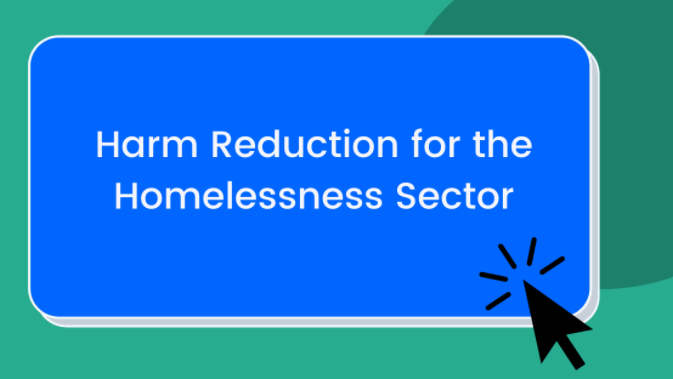This training explores harm reduction as an evidence-based intervention to reduce the risks associated with substance use. Harm reduction encompasses a broad set of strategies that can be applied in the housing and homeless-serving sector. This training emphasizes the importance of considering stigma and unconscious bias associated with substance use and homelessness. Harm reduction is an important part of strategies to end homelessness.
The training covers:
- Goals and benefits of harm reduction
- Principles of harm reduction
- Harm reduction practices and policies for shelters and housing programs
- Equity-based approaches to working with people who use substances and people experiencing homelessness
- Challenges of implementing harm reduction
Harm reduction is often perceived as a specific set of interventions including needle exchange and supervised consumption. In reality, there are countless practical ways to apply harm reduction that people in various roles can use.
The training is developed to support frontline service providers in the homeless-serving sector to apply harm reduction practices. The training will prepare frontline staff to work with people who use substances using a rights-based and equity-oriented approach. The training includes many practical resources, strategies and techniques that can be applied in a range of service contexts including outreach, shelters and housing programs.

